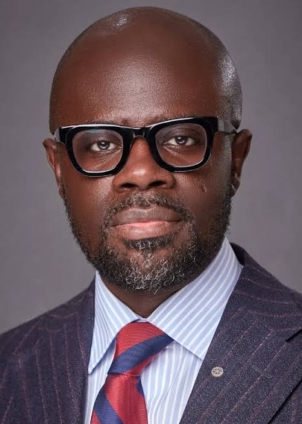The Dean of UPSA Law School, Prof. Kofi Abotsi, has highlighted the challenges of holding political actors accountable for their promises to citizens.
According to the Dean, politicians often make grand promises to win votes but fail to honour them once in power because no one holds them accountable.
In an interview with Joy FM’s Super Morning Show on Tuesday, Prof. Abotsi explained that, “Today we govern through institutions, and the institutional interface is the only way to achieve success if we truly desire it.
"However, it is not easy to get political actors to make commitment by which they will stand that’s the total of the matter," he added.
Mr Abotsi noted that it is impractical for all Ghanaians to individually demand accountability from politicians. Instead, he emphasised the role of institutional frameworks.
He identified two types of institutions: the “hard” institutional surface, which includes Parliament, the Judiciary, the Auditor General, and other bodies established by the constitution to ensure accountability.
While Parliament can hold political actors accountable for official promises and actions, it struggles to enforce pre-election promises made on campaign platforms.
He asserted that the media plays a crucial role in holding politicians accountable before and after elections.
The media's power lies in its ability to remind politicians of their promises and check if they have fulfilled them using specific benchmarks. This role has seen successes and failures.
On the one hand, the media has helped focus public attention on key issues, encouraging politicians to be more careful with their promises.
On the other hand, the media is often fragmented and politically influenced, leading to a distorted public conversation.
Mr Abotsi stressed that while the media can guide Ghanaians on the path of accountability, its effectiveness is hampered by political infiltration, which dilutes and convolutes public discourse.
He pointed out that state institutions, particularly Parliament, have largely failed to hold the government accountable. The majority party in Parliament often views itself as an extension of the executive, weakening Parliament's role across successive regimes.
Read also : Kwame Sowu: The Challenge of Political Promises and the Complex Realities of Governance
Latest Stories
-
AG files motion to strike out suspended CJ’s supplementary affidavit
11 minutes -
Lamine Yamal signs 6-year extension at Barcelona
15 minutes -
NPP supporters attack police pickup trucks at EOCO’s head office
18 minutes -
Wontumi’s arrest by EOCO likely linked to suspected money laundering – Kpebu
1 hour -
A/R: Fire destroys several apartments at Bomso
1 hour -
Scores of NPP supporters storm EOCO office over Wontumi’s arrest
1 hour -
Consumer Protection Agency commends FDA for crackdown on dangerous fake diapers
1 hour -
Two jailed 14 years for defilement in disturbing ‘money charm’ case
1 hour -
AI & Automation – The secret weapons transforming customer experience in Ghana
2 hours -
CJ’s removal saga: This is ‘alien to justice’ – Dame criticises ongoing proceedings
2 hours -
Exhibit your christian values at work to support Ghana’s development – Dean of St. Cyprian Anglican
2 hours -
Support cedi gains with strong domestic production – IEA
2 hours -
Rambo-style arrest of people unnecessary – NPP on Wontumi’s arrest by EOCO
2 hours -
Appointment blues: without sabotage, my boss would have been in public office by now
2 hours -
Chamber of Aquaculture calls on global investors to take advantage of Ghana’s mariculture sector
2 hours

